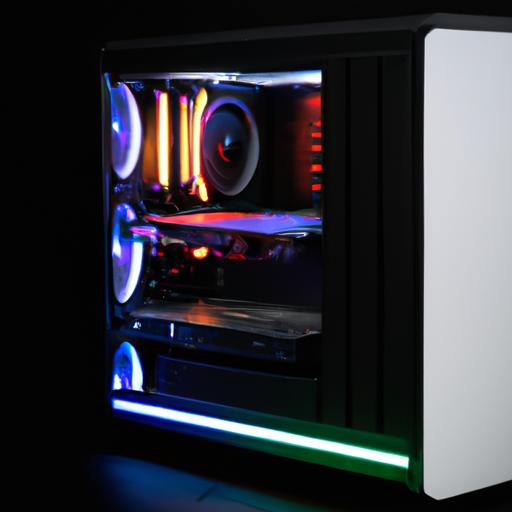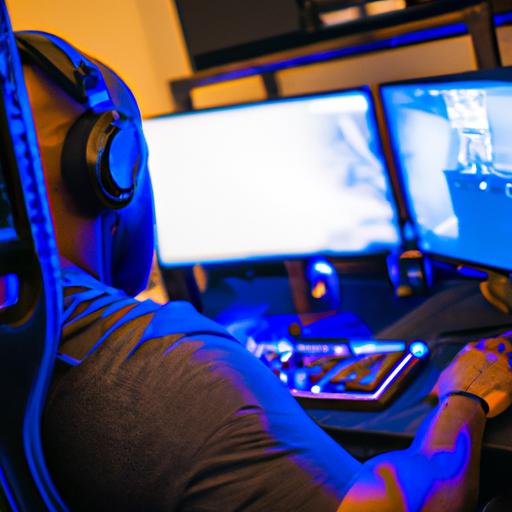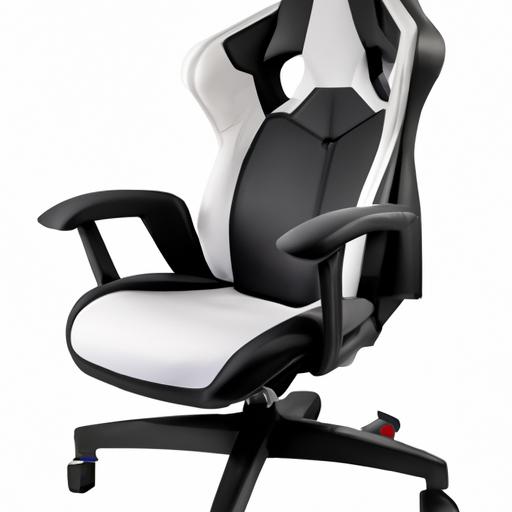What Gaming PC Should I Buy: A Comprehensive Guide to Making the Right Choice
Introduction
Are you an avid gamer looking to level up your gaming experience? Choosing the right gaming PC is crucial to unlocking the full potential of your favorite games. But with so many options available in the market, how do you make the right choice? Fear not, as I’m here to guide you through the maze of gaming PCs and help you find the perfect match for your gaming needs.
When it comes to gaming, the right hardware can make all the difference. It’s not just about having the latest and greatest; it’s about finding a PC that can handle the demands of your gaming preferences. Whether you’re into visually stunning AAA titles or the competitive world of esports, understanding the factors to consider before making a purchase decision is key.
So, what are these factors? First and foremost, you need to assess your gaming needs. What type of games do you play? Are they graphically intensive, or do they require high frame rates for a seamless experience? Knowing the system requirements of your favorite games will help you determine the minimum specifications your gaming PC should meet.
But it doesn’t stop there. You also need to consider your preferred gaming experience. Do you crave ultra-realistic graphics and immersive gameplay? If so, you’ll need a gaming PC that can handle higher resolutions and deliver smooth, lag-free performance. On the other hand, if you’re more focused on competitive gaming, achieving high frame rates for quick reflexes may be your priority.
Future-proofing is another crucial aspect to consider. Technology advances at a rapid pace, and new games often come with higher system requirements. Investing in a gaming PC that can handle upcoming releases will save you from the hassle of upgrading too soon.
In the next sections, we will delve deeper into each of these factors, helping you make an informed decision when it comes to choosing the perfect gaming PC for you. So, buckle up and get ready to embark on this exciting journey to find your gaming soulmate. Remember, the right gaming PC can turn your gaming sessions into extraordinary adventures!
Assessing Your Gaming Needs
Determining the Type of Games You Play and Their System Requirements
Before diving into the vast sea of gaming PCs, it’s important to assess the type of games you play and their system requirements. Are you a fan of visually stunning, graphically intensive AAA titles? Or do you find yourself immersed in the world of competitive multiplayer games? Each genre has different demands when it comes to hardware.
Take a moment to make a list of the games you frequently play or plan to play in the future. Research their recommended system requirements and take note of the minimum specifications needed to run them smoothly. This will give you a baseline to work with when shopping for a gaming PC.
Identifying Your Preferred Gaming Experience
Now that you know the system requirements of your favorite games, it’s time to think about your preferred gaming experience. Do you yearn for breathtaking visuals that transport you to another world? If so, a gaming PC with a powerful graphics card and high-resolution monitor should be at the top of your list.
On the other hand, if you’re more interested in competitive gaming, you might prioritize high frame rates and low latency. Look for a gaming PC with a fast processor and ample RAM to ensure smooth gameplay, allowing you to react quickly to in-game situations.
Considering Future-Proofing Options
Technology evolves rapidly, and new games often push the boundaries of hardware capabilities. To avoid having to upgrade your gaming PC too soon, consider future-proofing options. Look for a PC that allows for easy upgrades, such as additional RAM slots or extra storage bays. This way, you can keep up with the latest game releases without breaking the bank.
It’s also worth considering the lifespan of your chosen gaming PC. Investing in a well-built, durable machine will ensure it remains relevant for years to come. Pay attention to customer reviews and expert opinions to gauge the longevity and reliability of the gaming PC you’re considering.
By taking these factors into account, you can effectively assess your gaming needs and make an informed decision when purchasing your gaming PC. Remember, finding the right balance between system requirements, gaming experience, and future-proofing options will ensure countless hours of gaming bliss. So, let’s move on to the next section and explore budget considerations for your gaming PC purchase.
Budget Considerations
When it comes to buying a gaming PC, your budget plays a crucial role. Setting a realistic budget range is the first step towards finding the perfect gaming PC that suits both your gaming needs and financial constraints.
Establishing a Realistic Budget Range
Before diving into the world of gaming PCs, take some time to assess your financial situation. Determine how much you are willing to invest in your gaming rig. Setting a budget range will help you narrow down your options and prevent you from overspending.
Consider your gaming priorities and how much you are willing to allocate towards your gaming setup. Remember, a higher budget doesn’t always guarantee better performance, as there are various factors to consider. Finding the right balance between performance and affordability is key.
Pre-built PCs vs. Building Your Own
One crucial decision you’ll need to make is whether to go for a pre-built gaming PC or build your own from scratch. Both options have their pros and cons, so let’s weigh them out.
Pre-built PCs: Opting for a pre-built gaming PC can save you time and effort. These ready-to-use systems come with all the necessary components already assembled, so you can start gaming right away. Additionally, pre-built PCs often come with warranties and customer support, providing peace of mind.
On the downside, pre-built PCs may limit your customization options. You may have to compromise on certain components or pay extra for specific upgrades. Additionally, they tend to be more expensive compared to building your own.
Building Your Own: Building your own gaming PC allows you to handpick each component according to your preferences and budget. This gives you the flexibility to customize your rig to meet your specific gaming needs. Moreover, building your own PC can be a rewarding experience for tech enthusiasts.
However, building a PC requires knowledge of the different components and compatibility issues. It also involves time and effort in researching and assembling the parts. If you lack technical expertise or are short on time, building your own PC may not be the most practical option.
Exploring Cost-Effective Alternatives
If your budget is limited, don’t worry! There are cost-effective alternatives available that can still deliver a great gaming experience. Consider refurbished or used gaming PCs, as they can often provide excellent value for money.
Another option is to prioritize essential components, such as the processor and graphics card, while compromising on less critical components. By focusing on the key elements that impact gaming performance, you can allocate your budget more efficiently.
Additionally, keep an eye out for seasonal sales, discounts, and bundle deals. Retailers often offer promotional offers that can help you save some extra bucks without compromising on performance.
In conclusion, establishing a realistic budget range, considering the pros and cons of pre-built PCs versus building your own, and exploring cost-effective alternatives are essential steps in finding the right gaming PC. By carefully weighing your options, you can strike the perfect balance between performance and affordability, ensuring an immersive gaming experience without breaking the bank.
Researching Components
Analyzing Key Hardware Components
When it comes to gaming PCs, understanding the role of key hardware components is essential in making an informed decision. Let’s take a closer look at these components:
Processor (CPU)
The processor, also known as the CPU, acts as the brain of your gaming PC. It handles all the calculations and instructions necessary to run your games smoothly. Look for processors with higher clock speeds and more cores for optimal gaming performance.
Graphics Card (GPU)
The graphics card is responsible for rendering the visuals in your games. It determines the level of detail, resolution, and frame rates you can achieve. Consider graphics cards with ample VRAM and higher clock speeds for a visually stunning and immersive gaming experience.
RAM (Memory)
RAM, or memory, temporarily stores data that your games and applications need to access quickly. Opt for gaming PCs with ample RAM capacity to ensure smooth multitasking and faster loading times.
Storage
Gaming PCs typically come with two types of storage: solid-state drives (SSD) and hard disk drives (HDD). SSDs offer faster data transfer speeds, resulting in shorter loading times, while HDDs provide larger storage capacities at a lower cost. Consider a combination of both for optimal performance and storage space.
Understanding the Impact of Each Component
Each hardware component plays a crucial role in shaping your gaming experience. The processor determines how fast your games can run, while the graphics card affects the visual quality and smoothness. RAM ensures seamless multitasking, and storage dictates the speed at which your games load.
By understanding the impact of each component, you can prioritize your needs based on your gaming preferences. For instance, if you’re into graphically demanding games, investing in a powerful graphics card should be a priority. On the other hand, if you prefer faster load times and multitasking capabilities, focusing on RAM and storage might be more important.
Comparing Different Brands, Models, and Specifications
Once you have a clear understanding of the key components, it’s time to compare different brands, models, and specifications. Research online reviews, benchmark tests, and user feedback to gain insights into the performance and reliability of various gaming PCs.
Consider factors such as brand reputation, customer support, and warranty when comparing different options. Additionally, pay attention to specific features and technologies offered by different manufacturers, such as overclocking capabilities or specialized cooling systems.
Remember, the goal is to find the best combination of hardware components that align with your gaming needs and budget. Take your time to research and compare before making a final decision. A well-informed choice will ensure that you get a gaming PC that can deliver the performance you desire.
Choosing the Right Gaming PC
Identifying Reputable Brands and Manufacturers
When it comes to investing in a gaming PC, it’s essential to choose a reputable brand and manufacturer. Well-established companies often have a track record of delivering high-quality products with reliable performance. Look for brands that have been in the gaming industry for a while and have a strong presence.
Reputable brands not only provide better build quality but also offer excellent customer support and warranty services. They have a reputation to uphold, so they are more likely to stand behind their products and provide timely assistance if any issues arise. Some well-known gaming PC brands include ASUS ROG, Alienware, MSI, and HP Omen. Research these brands and explore their offerings to find the one that aligns with your requirements.
Evaluating Customer Reviews and Ratings
One of the best ways to gauge the performance and reliability of a gaming PC is by checking customer reviews and ratings. Hear from fellow gamers who have already purchased and used the PC you’re considering. Their experiences can provide valuable insights into the pros and cons of a specific model.
Visit reputable review websites, forums, and online marketplaces to read customer reviews. Pay attention to common complaints or praises regarding performance, durability, cooling capabilities, and other important aspects. Keep in mind that individual experiences may vary, so look for patterns and overall customer satisfaction.
Seeking Expert Opinions and Recommendations
While customer reviews are valuable, seeking expert opinions and recommendations can also help you make an informed decision. Experts in the gaming industry often have extensive knowledge and experience with different gaming PCs. They can provide valuable insights into the performance, compatibility, and overall value for money.
Look for reputable tech review websites, YouTube channels, and online communities where experts share their thoughts on gaming PCs. Pay attention to their detailed analysis, benchmark results, and comparisons between different models. Additionally, you can reach out to tech-savvy friends or join gaming communities to seek recommendations based on their personal experiences.
By combining customer reviews with expert opinions, you can gain a comprehensive understanding of the gaming PC you’re interested in. This dual perspective will help you make a well-rounded decision and choose a gaming PC that meets your expectations in terms of performance, reliability, and value.
Remember, research is the key to finding the right gaming PC. Take your time, explore various sources, and gather as much information as possible before making your final choice. With a little patience and effort, you’ll be well on your way to finding the perfect gaming PC that will bring your gaming adventures to life!
Conclusion
In conclusion, choosing the right gaming PC is a decision that requires careful consideration. By understanding the importance of selecting the right hardware and assessing your gaming needs, you can ensure an immersive and enjoyable gaming experience.
Remember to factor in your budget when making a purchase decision. Determine a realistic budget range and explore options that offer the best value for your money. Whether you opt for a pre-built PC or decide to build your own, there are cost-effective alternatives available that won’t compromise on performance.
Thoroughly research the components of a gaming PC, including the processor, graphics card, RAM, and storage. Understanding the impact of each component on gaming performance will help you make an informed decision. Read customer reviews, seek expert opinions, and consider reputable brands and manufacturers to ensure quality and reliability.
Once you have narrowed down your options, consider additional features and peripherals such as monitors, keyboards, and mice. These can enhance your overall gaming experience and should be chosen with your preferences in mind.
By following these steps and considering the factors discussed, you will be well-equipped to make the right decision when it comes to purchasing a gaming PC. Remember, finding the perfect gaming PC is like finding a loyal gaming companion that will accompany you on countless virtual adventures.
So, what gaming PC should you buy? The answer lies within your unique gaming needs, preferences, and budget. Take your time, do your research, and make an informed decision. With the right gaming PC, you’ll be ready to conquer virtual worlds, unlock new achievements, and immerse yourself in unforgettable gaming experiences. Happy gaming!






